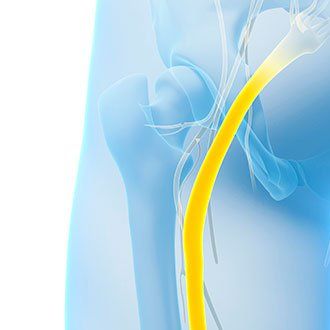A 79-year-old stroke survivor learns to walk again as the "Battle Hymn of the Republic" guides his legs.
A woman with terrible insomnia now slips into dreamland courtesy of Pachelbel's timeless Canon in D.
In a hospital intensive-care unit, patients on ventilators who listen to music of their choice actually relax, while those who don't hear music grow more tense. Exciting research suggests that the brain responds to music almost as if it were medicine. It may regulate some body functions, synchronize motor skills, stimulate the mind—even make us smarter.
What music can do for you
Clinical studies and anecdotal evidence from music therapists suggest that the sound of music:
- Manages pain
- Improves mood and mobility of people with Parkinson's disease
- Reduces the need for sedatives and pain relievers during and after surgery
- Decreases nausea during chemotherapy
- Helps patients participate in medical treatment that shortens hospital stays
- Relieves anxiety
- Lowers blood pressure
- Eases depression
- Enhances concentration and creativity
The best part is that to take advantage of music's healing power, you don't need to take a prescription to your local music store. You don't even have to go to the music store at all. The home remedies you need are probably already in your music collection.
"Many years of research have shown me that there is no set prescription, no particular piece of music that will make everyone feel better or more relaxed," says Suzanne Hanser, EdD, chairperson of the music therapy department at Berklee College of Music and a music therapist at Dana-Farber Cancer Institute, both in Boston. "What counts is familiarity, musical taste, and the kinds of memories, feelings, and associations a piece of music brings to mind. Some people relax to classical music, others like the Moody Blues. The key is to individualize your musical selections."
You can design your own musical "prescription." Just follow these guidelines, using your own favorite music or our suggestions, to cope with specific health problems.
To cheer up
Moods rose and depression fell for 20 people, ages 61 to 86, who listened to familiar music they selected while practicing various stress-reduction techniques—on their own or with the help of a music therapist—according to a study from Stanford University School of Medicine. Meanwhile, a control group who missed out on the music and the exercises saw no improvement during the 8-week study period.
If you feel depressed, see a doctor for treatment. But if you're simply stuck in a blue mood, try this musical approach:
Best music: Upbeat, energetic, rhythmic selections
Examples: Depending on your taste, that might mean a foot-tapping big band number such as Duke Ellington's "Take the 'A' Train," the fast movements from a Baroque-era concerto, or a cheerful Beatles tune.
Listening strategy: While the music plays, perform gentle exercises, depending on your fitness level. Let the music move you. Keep your movements light and flowing. Breathe to the music. With each new phrase, find a new way to move. Gently come to rest at the end of the music.
MORE: Are Your Bummed Out Or Depressed?
To get to sleep
The research: Classical and New Age music helped 24 of 25 people with sleeping problems nod off more quickly, snooze for longer periods of time, or get back to sleep more easily after a middle-of-the-night awakening, according to a study from the University of Louisville School of Nursing.
Best music: Quiet, melodic pieces with a slow beat and few, if any, rhythmic accents
Examples: Many slow movements from classical music of all periods. Study participants listened to G.F. Handel's "Water Music," Pachelbel's Canon in D, and Vivaldi's "The Four Seasons." For New Age selections, try "The Fairy Ring" by Mike Rowland, which was used in sleep studies.
Listening strategy: Begin shifting into low gear after supper. Skip the after-dinner coffee, and avoid telephone calls and TV after 9 pm. Play softer and quieter music as bedtime approaches. Continue listening in bed with an iPod or CD player equipped with a silent on/off switch. Lie quietly, taking even, deep breaths.
To reduce stress
The research: Many studies have found that soothing melodies can ease anxious feelings and quiet both blood pressure and heart rate—even under very stressful conditions. Everyday stress responds to music too, says Hanser, who leads music-therapy groups for patients, families, and staff at the Dana-Farber Cancer Institute. Here's her technique:
Best music: "Look for something that deeply focuses your attention, so that the worries of the day—your concerns about what's happened earlier and your plans for what should happen in the future—slip away," says Hanser. "You want to free your mind and distract yourself. The music must grab your attention and at the same time relax your body."
Examples: Anything goes. Slow music—a love song, a ballad sung by a great voice such as Ella Fitzgerald, Frank Sinatra, or Norah Jones, or a calm instrumental piece—may be perfect. But if a slow tune gives your mind time to fret or obsess, consider something livelier.
Listening strategy: Sit or lie down in a comfortable position, in a place where you will not be disturbed. After listening for a few minutes, add a relaxation exercise: Starting at your feet, gently tighten, then relax your muscles. "You can feel refreshed after listening for as little as 10 minutes," Hanser says. "Afterward, you may find that you're able to think more clearly and approach the rest of your day with a more positive, relaxed outlook."
MORE: 9 Morning Exercises To Start Your Day Stress-Free
To relieve pain
The research: Physical discomforts—from postoperative pain to chronic aches—can be eased with flowing melodies and distracting rhythms, music therapists and researchers say. One study from Yale University School of Medicine found that people who listened to their favorite music while awake during a surgical procedure needed smaller amounts of sedative and pain medications than those who didn't hear music.
Alicia Ann Clair, PhD, a board-certified music therapist and director of music therapy at the University of Kansas in Lawrence, has also found that the application of music can bring temporary relief from both short-term pain and long-term discomforts associated with chronic medical conditions. "Music won't eliminate the need for pain relievers," Clair says. "But it may help them be more effective."
Best music: Gentle, soothing stress-reducing selections. "You want to break the pain cycle by sending your body cues to relax and by occupying and distracting your mind," says Martha Burke, MT-BC (Music Therapy, Board-Certified), director of the Center for Music Therapy Research in Greenville, NC. "Gently flowing music or music with a slow, steady pulse can help promote relaxation, which can then alter your perception of pain."
Examples: You may respond to lullaby-like selections. Or, if you're feeling agitated, an up-tempo piece, such as a Broadway show tune, may distract you more completely at first. Then switch to something more soothing after 5 to 10 minutes. This can help lower your heart rate and breathing rate, further relaxing you. "The goal is to reduce the tension that comes with pain," she says.
Listening strategy: Sit or lie in a comfortable position while the music plays. "Take at least 15 minutes to concentrate fully on the music," Burke suggests. "This is more than background music for washing the dishes or reading the newspaper. Give it your full attention."
MORE: 100 Ways To Fight Pain Naturally














